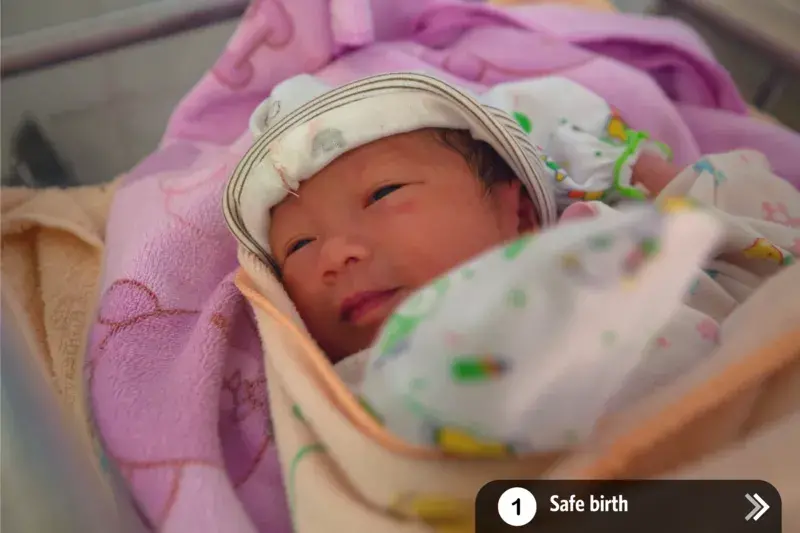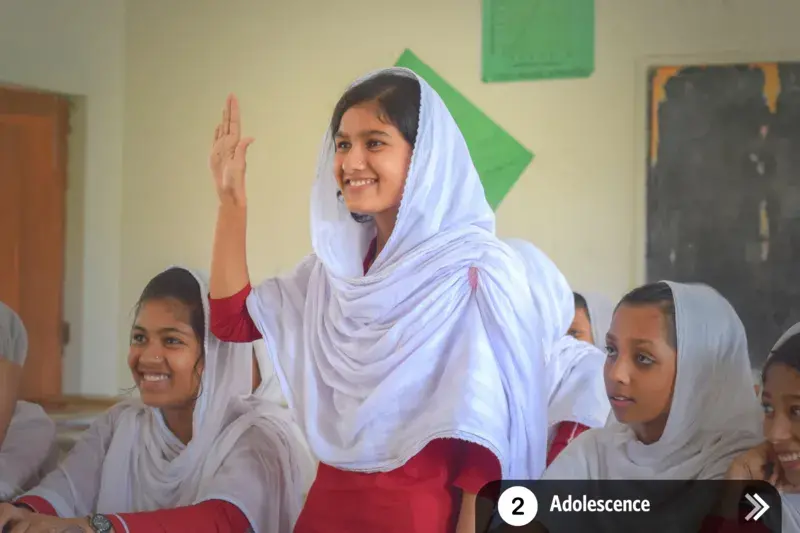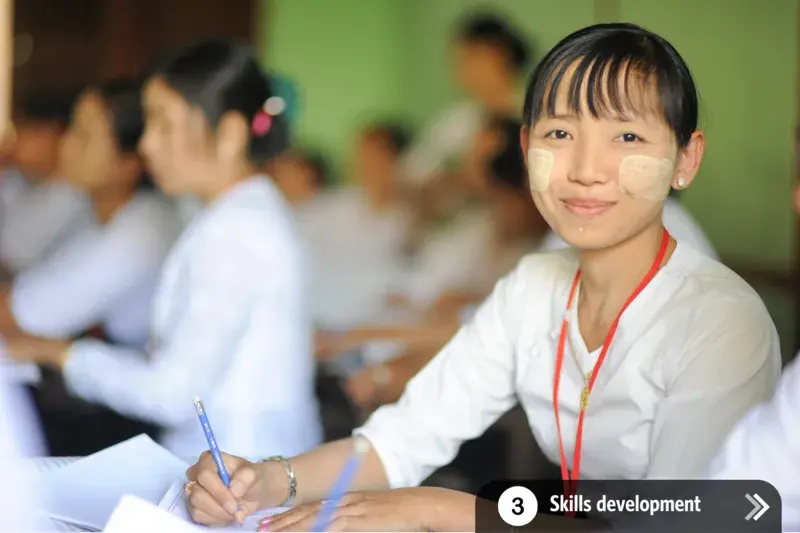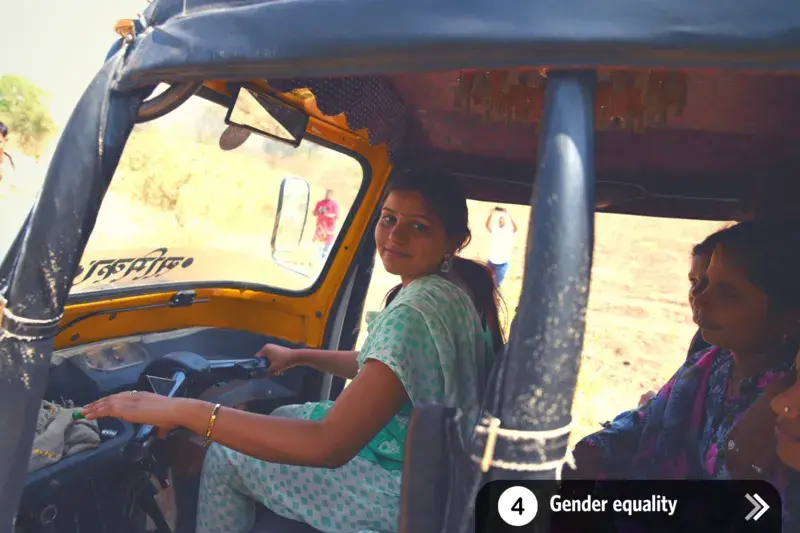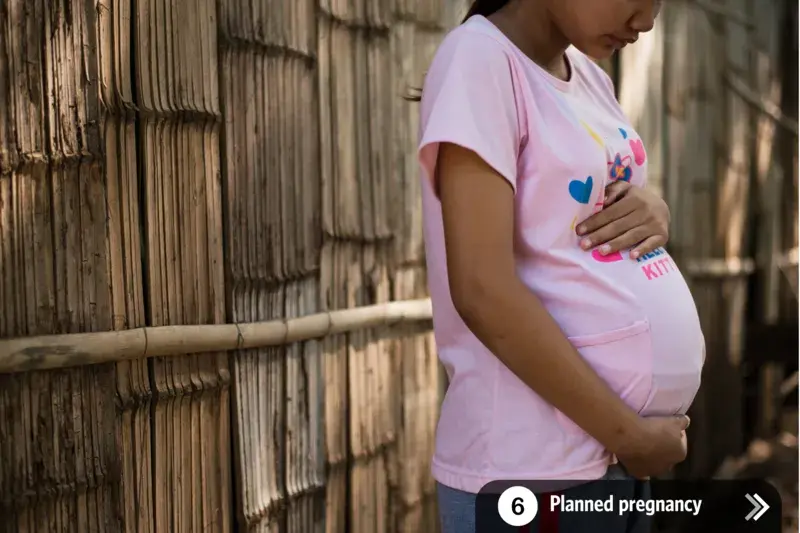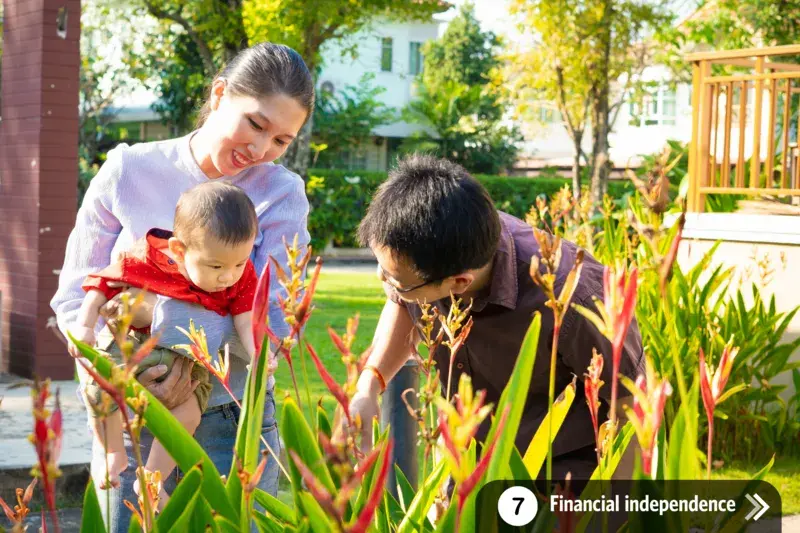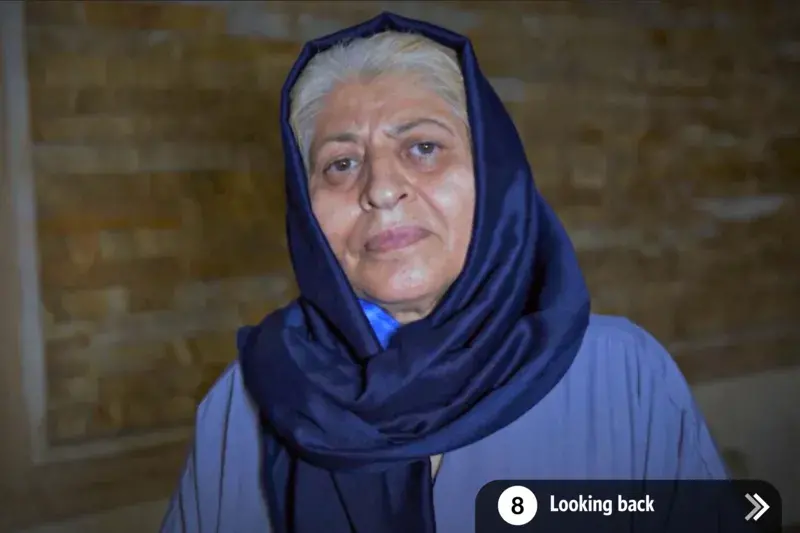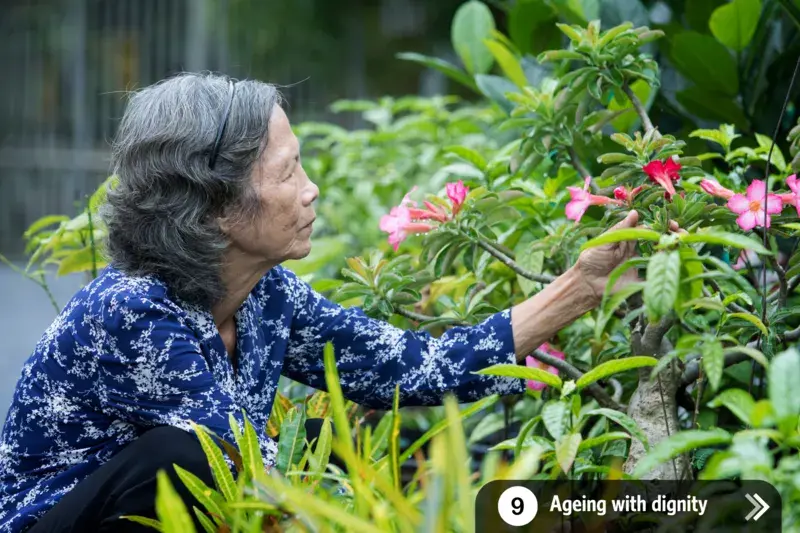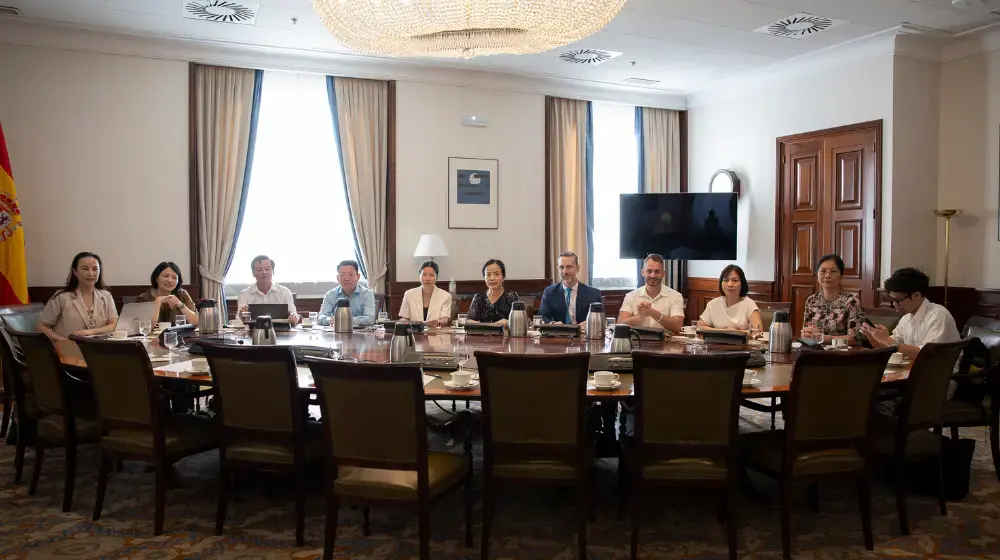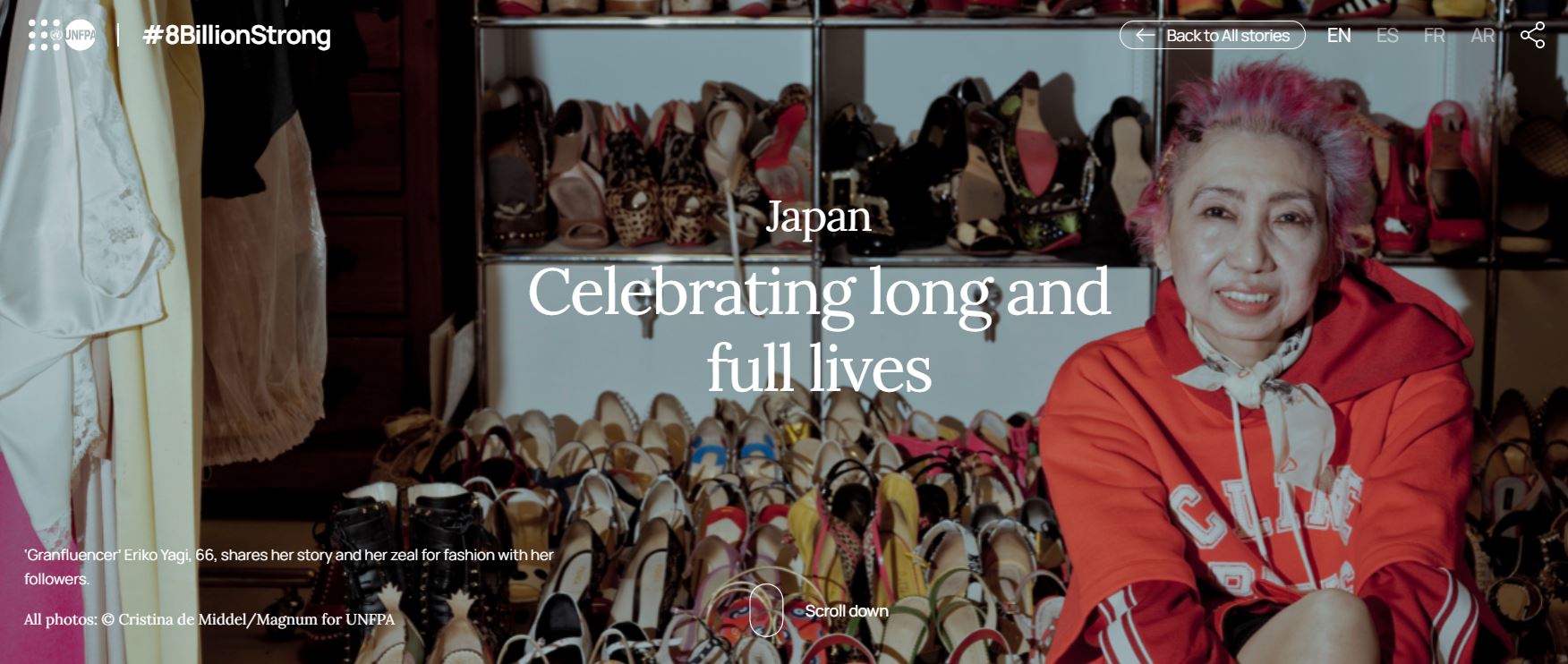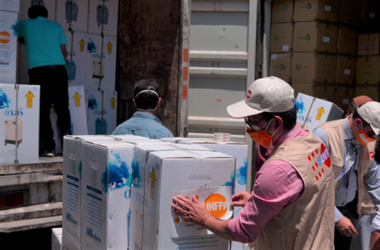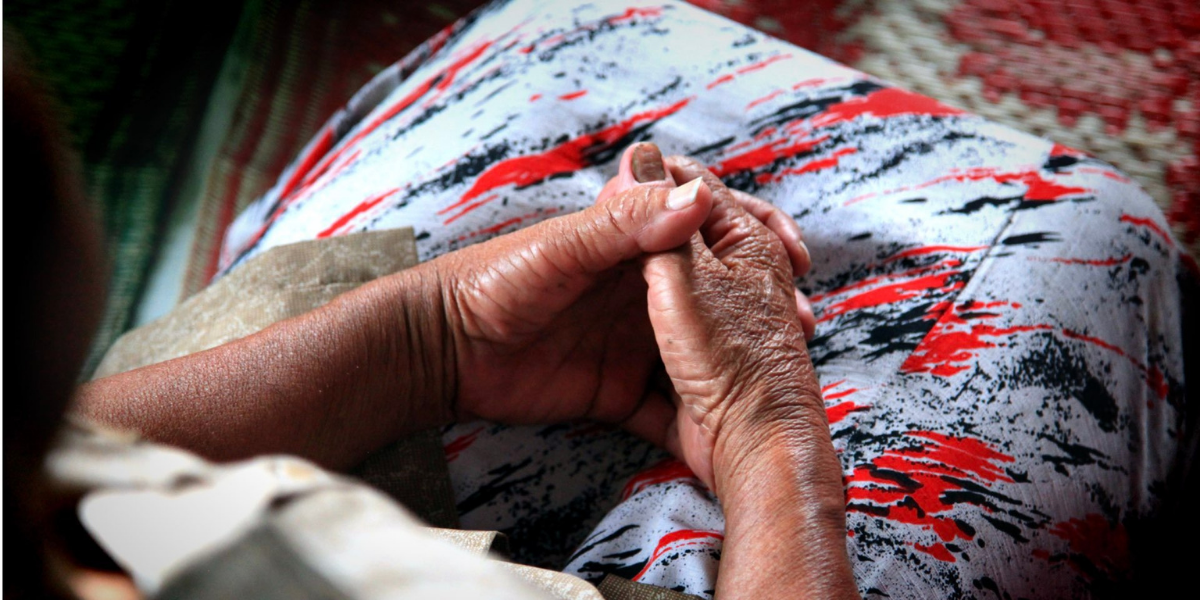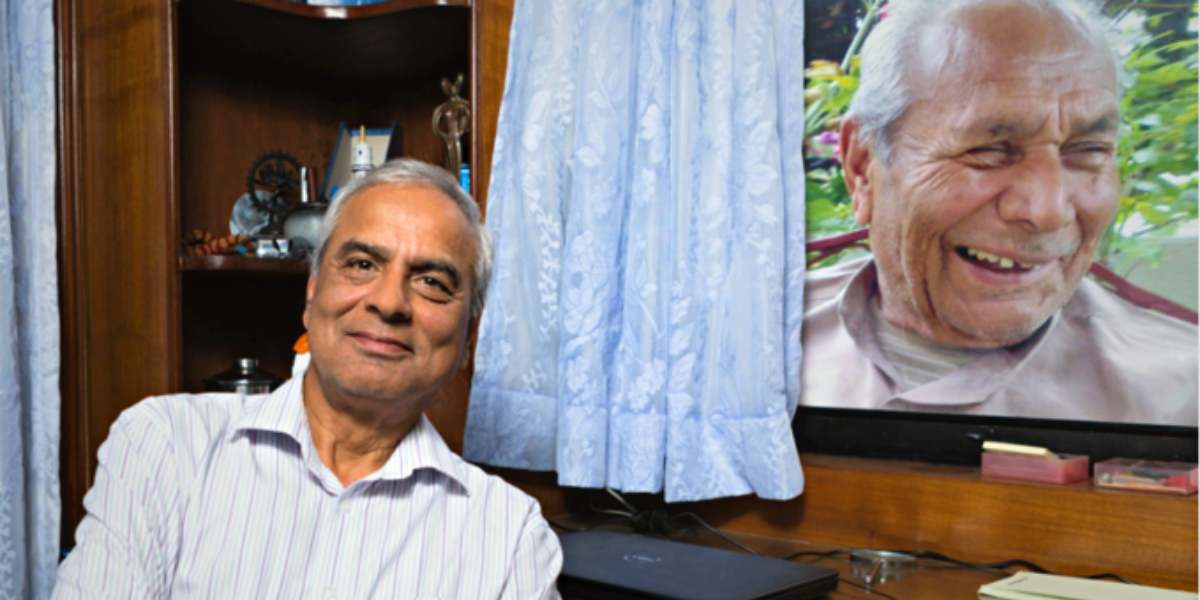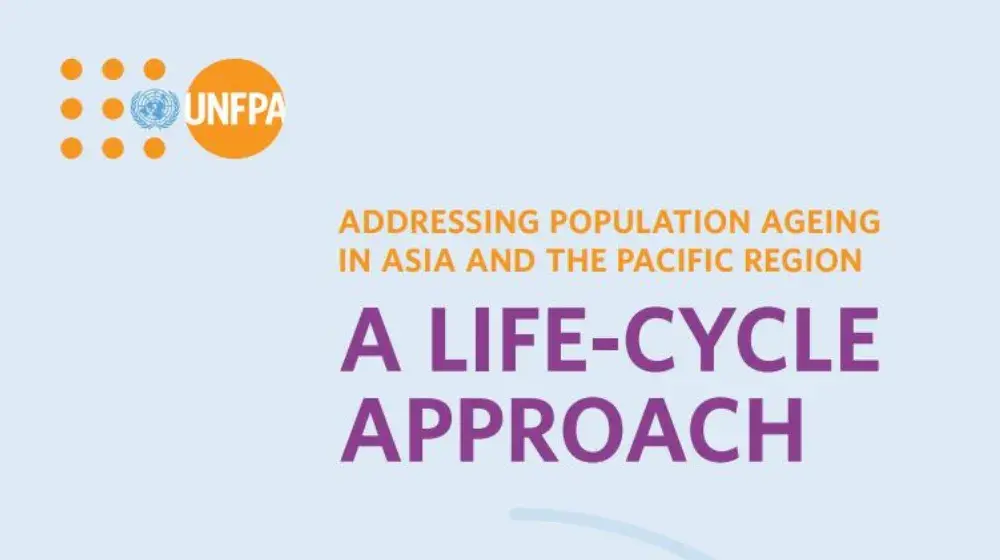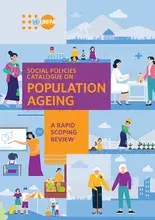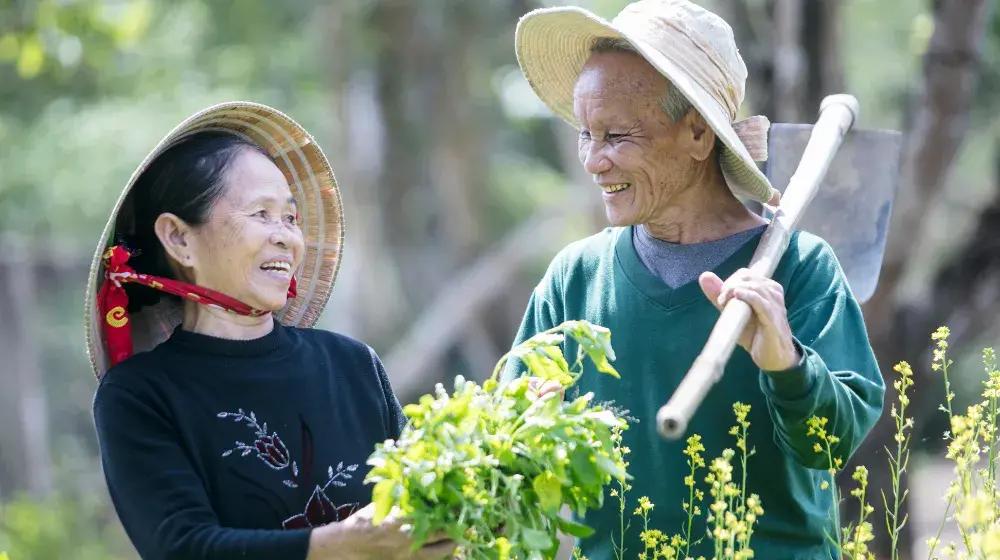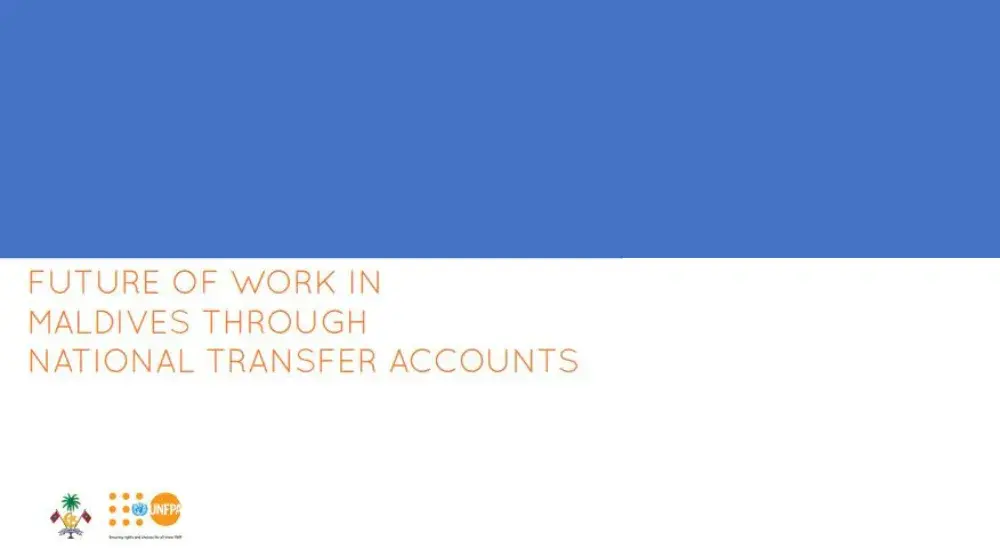On International Day of Older Persons, the Regional Director for UNFPA in Asia and Pacific, Mr. Pio Smith, highlights why it is important to invest in every stage of a person's life to ensure they age with dignity.
Ageing
News
A silver lining: Ageing with dignity in Asia-Pacific
01 October 2024
For more information
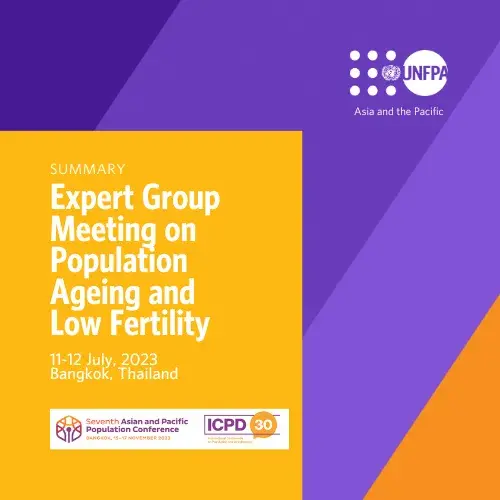
Publisher
UNFPA Asia-Pacific Regional Office
Author
UNFPA Asia-Pacific Regional Office
Resource
Summary Report: Expert Group Meeting on Population Ageing and Low Fertility (11-12 July 2023)
Publication date
04 September 2023
The number of people aged 60 years or over in the Asia-Pacific region is projected to increase from 13.6 percent in 2020 to 24.9 percent in 2050. This means that one in four people in the region will be aged 60 or over, while individuals aged 80 years or over will represent a fifth of all older people by mid-century.
News
Investing in every stage of her life
01 October 2022
Opinion-editorial by Mr. Björn Andersson, UNFPA Regional Director for Asia and the Pacific, on the occasion of the International Day of Older Persons, calling on countries to adopt a life-cycle approach to address population ageing.
Photos
#ForEveryAge of her life: Explaining the life-cycle approach in 10 photos
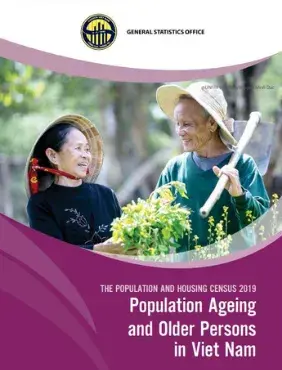
Publisher
UNFPA Viet Nam
Number of pages
60
Author
UNFPA Viet Nam
Publication
The Population And Housing Census 2019: Population Ageing and Older Persons in Viet Nam
Publication date
01 July 2021
This monograph, “Population ageing and older persons in Viet Nam”, was developed using data from the Population and Housing Censuses conducted in 2009 and 2019 and other relevant sources. It builds on in-depth analyses from previous reports on population ageing in Viet Nam.
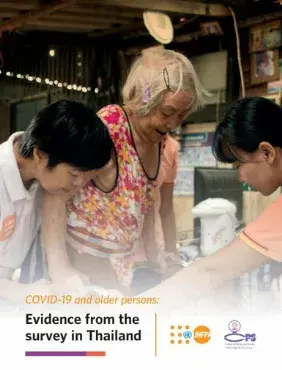
Publisher
UNFPA Thailand
Number of pages
118
Author
UNFPA Thailand
Publication
The Impact of COVID 19 on Older Persons in Thailand
Publication date
01 October 2020
This report is written based on a survey conducted by the College of Population Studies of Chulalongkorn University, commissioned by UNPFA in Thailand. The objective of the survey was to provide evidence to decision makers to inform responses to older persons’ needs during the COVID-19 lockdown period.
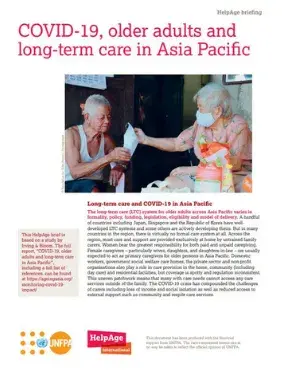
Publisher
HelpAge International
Number of pages
4
Author
HelpAge International
Publication
HelpAge & UNFPA: Monitoring COVID-19 impact on older persons
Publication date
01 June 2020
The COVID-19 pandemic and its consequences pose significant threats to the wellbeing and dignity of older persons across the Asia Pacific region. The pandemic will have far-reaching and long-lasting impacts in unpredictable ways. Monitoring the impacts of COVID-19 on older persons is therefore essential to inform policy makers and the broader society in order to ensure responses are inclusive of older persons. Throughout 2020, HelpAge and UNFPA, therefore, monitored the situation of older people across the region and in a sample of target countries.
Asia-Pacific is one of the most rapidly ageing regions in the world.
By 2050, one in four people will be above the age of 60, most of whom will be women.
While there is no single comprehensive policy to address population ageing and low fertility, there is an urgent need for countries to adapt a life-cycle approach with gender equality at its core. It is by investing in each stage of life, starting from before a girl's birth to her childhood, adolescence, and adulthood, that women - and their communities and countries - will be able to enjoy healthy and active ageing.
This is the rationale behind UNFPA’s regional advocacy campaign 'For Every Age' - underscoring the need for rights-based life-cycle policies to transform perceived demographic challenges into opportunities for all.
This collection of material including technical guidelines, publications, feature stories and videos, provides a snapshot of our work across Asia-Pacific supporting countries to adopt a life-cycle approach to prepare for a future where every age is celebrated and no one is left behind.
Taking a life-cycle approach to ageing in Asia-Pacific
VIDEO: Investing in every stage of a person's life, from childbirth to childhood to adolescence to adulthood, determines the life path towards healthy and active ageing.
Understanding National Transfer Accounts
National Transfer Accounts (NTA) are a tool to generate a national economic analysis concerning population change. Watch to find out more about how the NTA analysis can be used by policy planners.
|
|
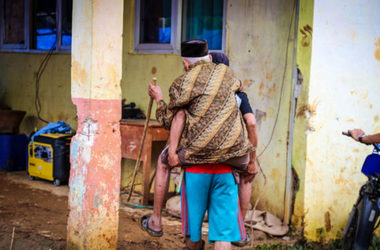 |
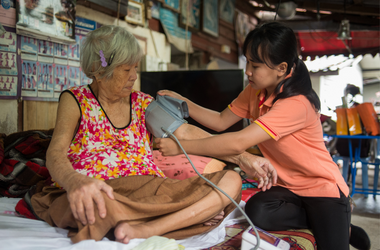 |
|
In Iran, we delivered 1,000 oxygen concentrators to the State Welfare Organization for the benefit of the elderly, through a partnership with UNICEF and the EU Civil Protection and Humanitarian AID Operations (ECHO). |
In Indonesia and Viet Nam, with contributions of over USD 2.8 million to each country from the Government of Japan, we are working to ensure continued care and services for older persons during the pandemic, among other vulnerable populations. READ MORE: Viet Nam |
In Thailand, we released a pioneering report on COVID-19 and older persons based on a UNFPA-supported survey conducted by Chulalongkorn University. The report served to inform decision-makers on the needs of older persons’ during the COVID-19 lockdown period. |
Partnerships and innovation for increased impact
Indonesia: When an earthquake and subsequent tsunami devastated Central Sulawesi in September 2018, Dewi Rana was on the frontlines, responding to the aftermath. Working with vulnerable groups such as new mothers, she soon found that older people were also at risk. The innovations for the elderly that Dewi helped lead are now being woven into the region’s COVID-19 response. READ MORE
Nepal: A year after Krishna’s mother passed away in 2003, his father began to age rapidly - becoming forgetful, mixing words up, and losing the ability to carry out basic daily activities. It was only when Krishna took him to the hospital that he heard the words ‘incurable dementia’ for the first time. Shocked by the total lack of awareness in society around dementia and other issues related to ageing, Krishna founded the non-governmental organization, Ageing Nepal. READ MORE
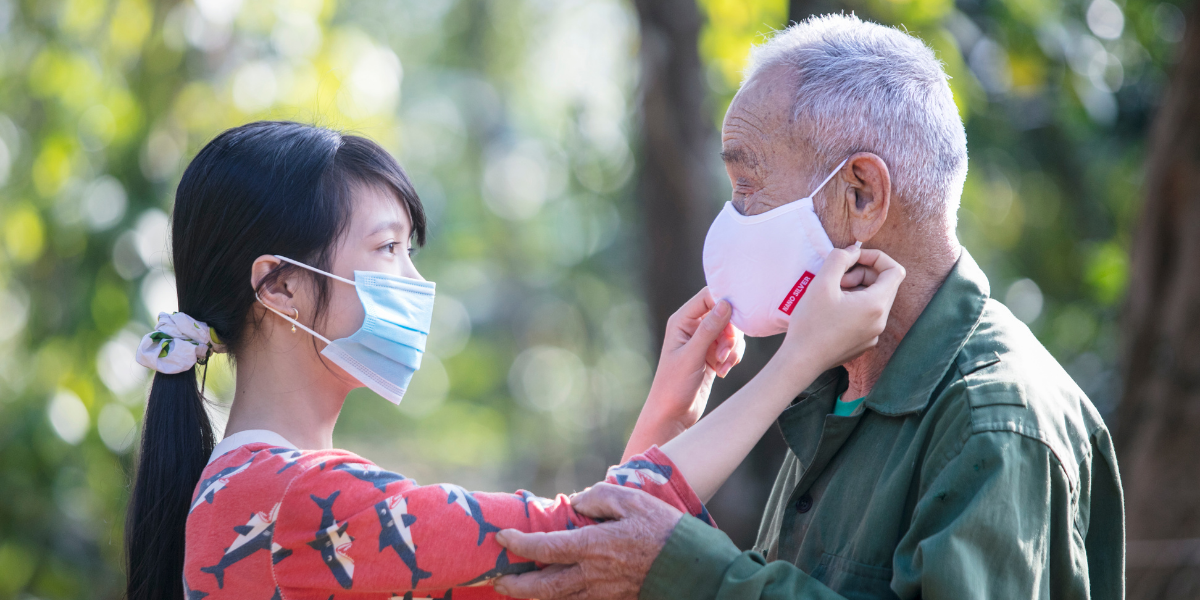
Viet Nam: Engaging young people to help address the needs of older persons in Viet Nam, UNFPA, together with the Ministry of Labour, Invalids and Social Affairs, established a student start-up innovation competition. Students from some 2,000 vocational education and training institutions across the country are sharing digital transformation ideas to provide continued, dedicated and uninterrupted care and social security for older people and persons with disabilities during the pandemic. READ MORE
In increasing awareness of the needs of older persons during the COVID-19 pandemic, UNFPA Viet Nam also developed a series of informational videos. The videos were developed in partnership with the Ministry of Health, HelpAge International, and the Viet Nam Association of the Elderly.
Publications
28 January 2021
Addressing Population Ageing in Asia and the Pacific Region: A Life-Cycle Approach
Read storyPublications
06 September 2017
Perspectives on Population Ageing in the Asia Pacific Region
Read storyPublications
01 July 2021
The Population And Housing Census 2019: Population Ageing and Older Persons in Viet Nam
Read storyPublications
01 January 2020
Future of Work in Maldives through National Transfer Accounts
Read storyIndia
Survey Report; Innovative practices for care of elderly women in India- Stree Shakti (2016)
Survey Report; Older Women in India: Economic, Social and Health Concerns (2015)
Survey Report; Social Security for the Elderly in India (2015)
Working Paper; Good Care Leads to Healthy Life: A Study of Differential in the Care and Support and its Impact on Wellbeing of Elderly - Series II (2014)
Working Paper; Household context, social capital and wellbeing of older adults in India-Series II (2014)
Indonesia
Report; Indonesia on the Threshold of Population Ageing (2015)
Iran
Report; Ageing Report (2017)
Malaysia
Policy Brief; UNFPA & University Putra Malaysia: Social Protection for the Elderly and Unpaid Care Work
Maldives
Report; Future of Work in Maldives through National Transfer Accounts (2020)
Nepal
National Action Plan; Unofficial English translation of National Action Plan for Senior Citizens (2005)
Policy; Senior Citizen's Act (2006)
Policy; Senior Citizen's Guidelines (2008)
Pacific Islands
Report; Population Ageing in the Pacific Islands: A Situational Analysis (2014)
Sri Lanka
Report, Population Dynamics and the Economic Life-cycle: An analysis of National Transfer Accounts for Sri Lanka (2022)
Policy Dialogue; Feminization of Ageing (2019)
Policy Dialogue; Making Active Ageing a Reality (2018)
Policy Dialogue; Population Ageing and its Policy Implications (2017)
Census Report; Ageing population in Sri Lanka: Emerging issues, needs and policy implications (2017)
Policy Brief; Features, Challenges and Opportunities of Population Ageing: Sri Lankan Perspective (2016)
Thailand
Report; The State of Thailand’s Population 2015: Thai Families in the Era of Low Fertility and Longevity (2015)
Infographic; Infographics summarizing the State of Thailand’s Population Report 2015 (2017)
Report; Impact of Demographic Change in Thailand (2011)
Viet Nam
Census Report; Population Ageing and Older Persons in Viet Nam (2021)
Working Paper; Disabilities among Older Persons and Care Needs of Older Persons Living with Disabilities (2019)
Download campaign assets
Advocating for a rights-based life-cycle approach to address population ageing across Asia-Pacific requires a collective effort from multiple stakeholders, including partners, civil society, and individuals.
Download the #ForEveryAge campaign social media cards, key messages, and other assets here.
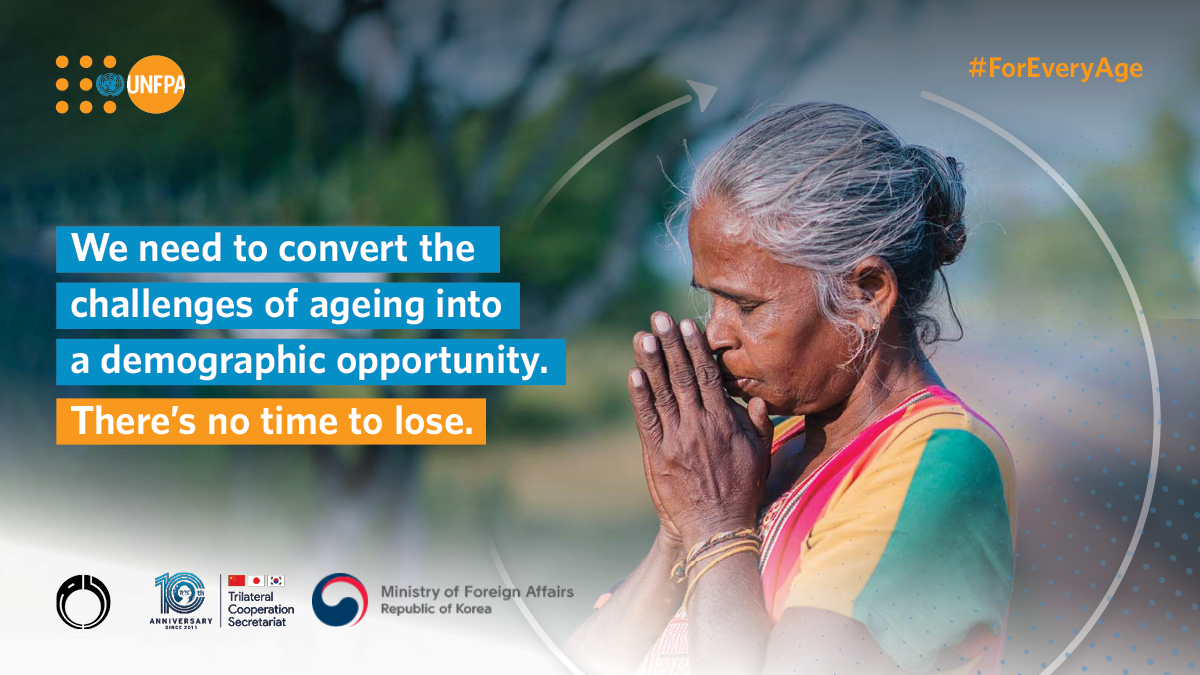
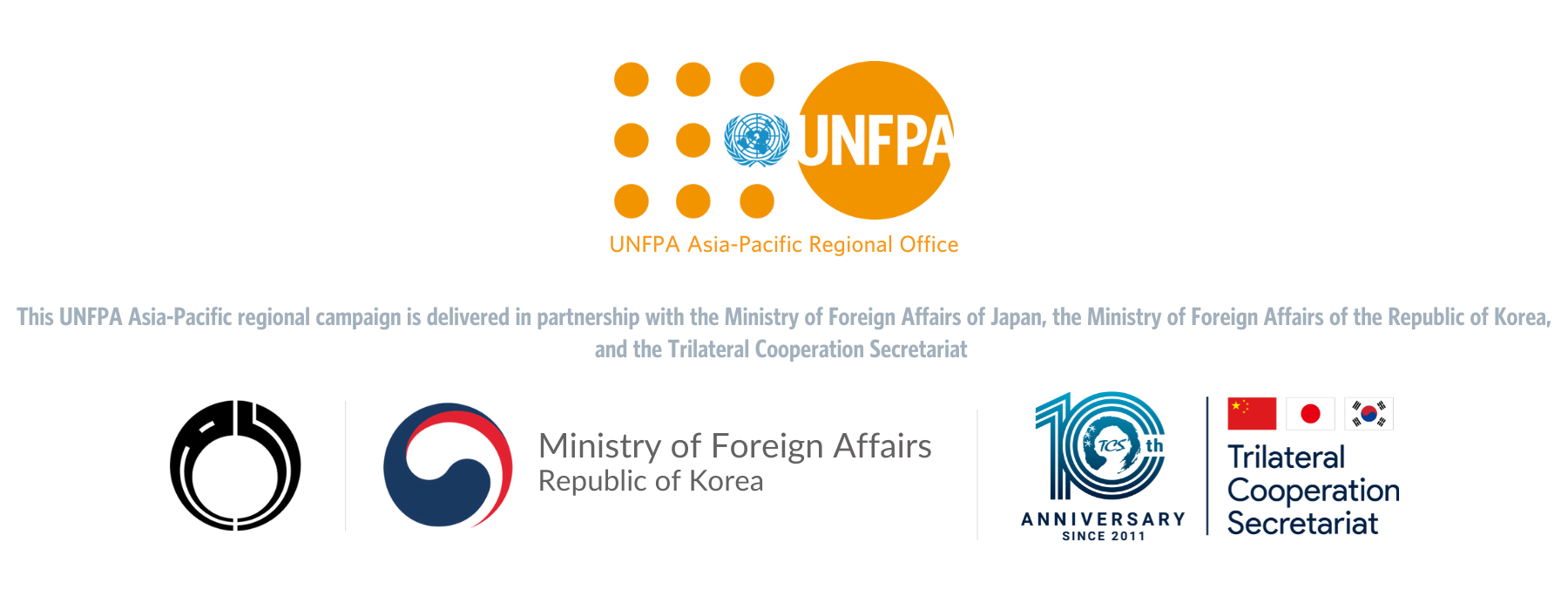
Events
Global Conference of Parliamentarians in Population and Development (GCPPD) 2016
26 April 2016
Tokyo

The 42nd G7 Summit in Ise-Shima, Japan in 2016 will be the first G7 Summit to be held since the adoption of the 2030 Agenda for Sustainable Development.
The number of older people in the Asia-Pacific region is rising at an unprecedented rate and it is at the forefront of the global phenomenon of population ageing.
By 2050, one in four people in Asia and the Pacific will be over 60 years old. The population of older persons (aged over 60) in the region will triple between 2010 and 2050, reaching close to 1.3 billion people.


